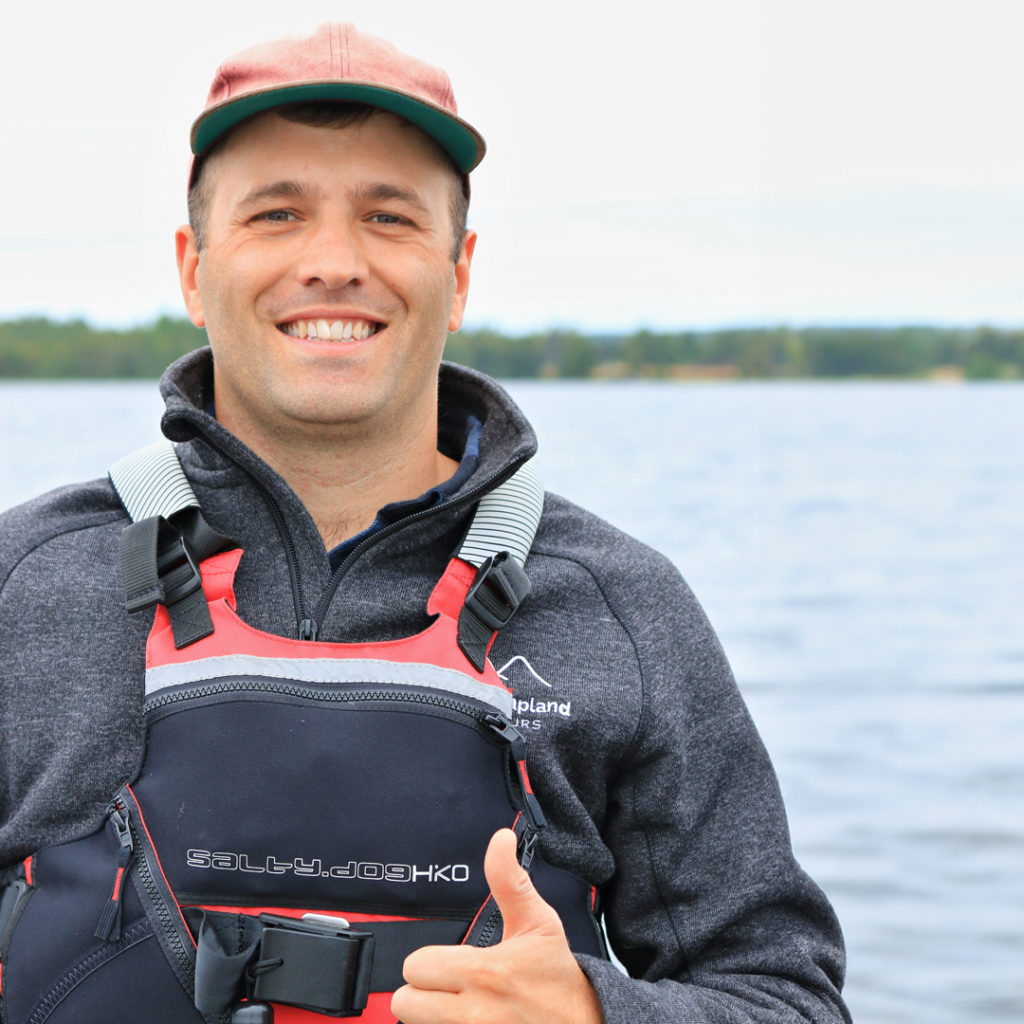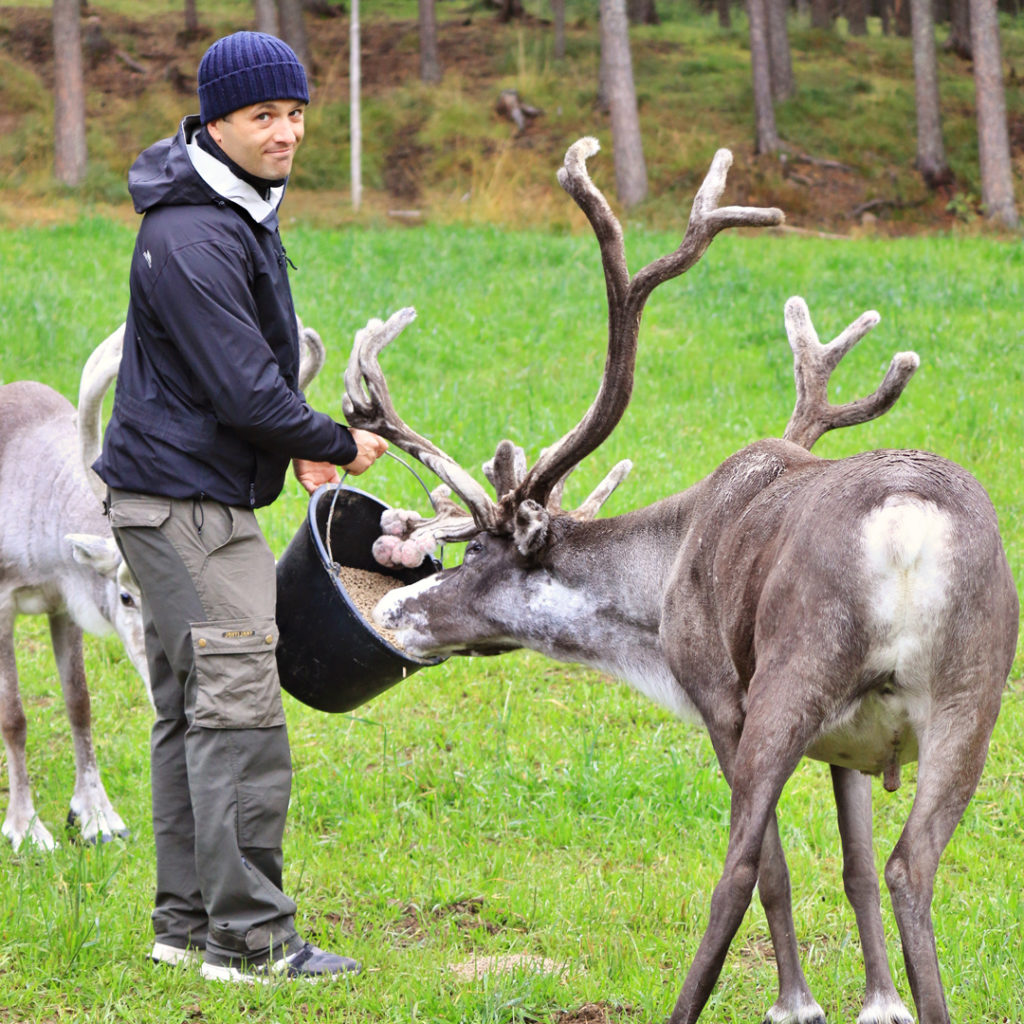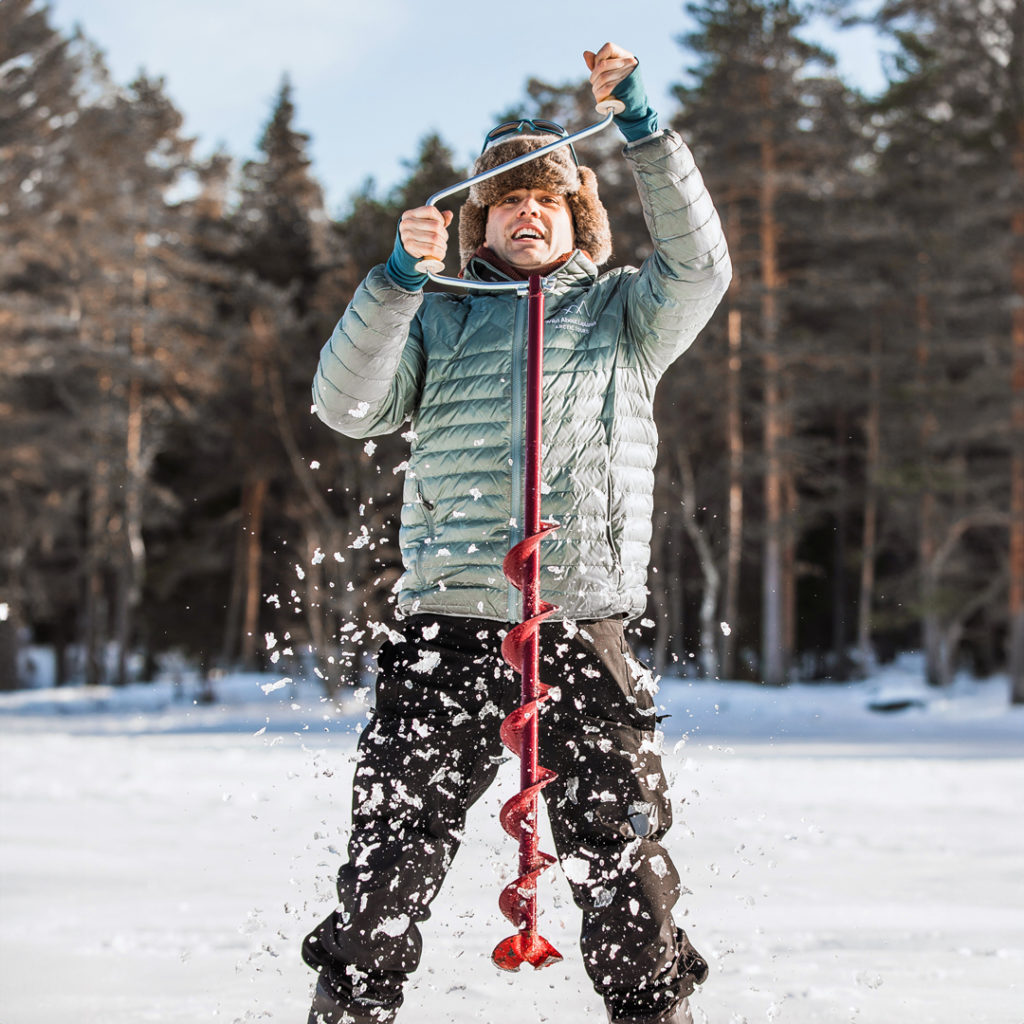“Love brought me to this country”
In October, the tourism industry in Lapland is preparing for the winter season. Theo Turner still has a few moments of calm before tourists descend on Santa’s hometown. Turner’s company, Wild About Lapland, offers tourists iconic Lapland experiences: dog sledding, skiing, and hiking trips around Rovaniemi.
“National Geographic just published an article about the six best places in the northern hemisphere to see the northern lights. Our company was mentioned in the story. This was a complete surprise to us, almost a shock. I’m hoping that the article will bring us more customers,” says Theo.
The entrepreneur is expanding his company: he now has almost 50 employees. However, his hope is not to move the masses, but rather to stick to his principles, providing a more individual and environmentally sustainable hiking experience.
“Our principle is that the smaller the group, the greater the experience.”

A surprising amount of red tape
When Theo was a budding entrepreneur in Finland seven years ago, he had experience in different professions – including from the military and working as a guide. And most of all: he had a great business idea. The most important factor was, of course, a Finnish girl whom he had met on a French train a couple of years ago.
“Mine is the usual story: love brought me here. And then I also fell in love with the Finnish nature.”
The couple lived in Helsinki for a while, but decided to move to the Arctic Circle, where Theo could support himself as a guide. He dreamt of organising responsible trips for tourists to see the northern lights, reindeer, and forests, to experience winter fishing, as well as to meet Father Christmas.
“There was clearly a niche in the tourism market, so I jumped on it. I knew I definitely wanted to start my own business. But when I started the work to set up the business, I came up against obstacle after obstacle.”
He shares his thoughts on how the Finnish bureaucracy surprised him.
“I had only been living in Finland for about a month. I had no job or bank account at the time. I was told that I couldn’t have one without the other. Whenever I called and asked for advice on what to do, I was told to call somewhere else.”
Theo nearly threw his hands up in defeat and gave up on his idea. It really felt like things were going nowhere fast.
The City of Helsinki’s business advisory service got the ball rolling.
“They gave me step-by-step instructions on what to do next. I also received assistance in making a business plan, which was required in order for me to receive a start-up grant. That 600 euros was truly important support at the beginning.”
Theo’s tips for a new foreign entrepreneur:
1. Be persistent.
2. Have documents translated into your mother tongue.
3. Find out what kind of support is available from Kela in the event that you fall ill, for example.
Delegation is key
For a couple of years, Theo ran his company in Rovaniemi on a small scale as a sole business proprietor. He then changed the company into a limited liability company. According to Turner, there were plenty of customers, but the responsibility weighed heavily on his shoulders.
“At first, I was just way too naïve. I wanted to participate in everything myself. It really stressed me out and I even suffered from burnout a couple of times. It wasn’t until I learned to delegate tasks to others that things began to go more smoothly.”
The entrepreneur now dreams of expanding his business abroad. Even in the vicinity of Rovaniemi, Theo has plenty of development ideas. He runs the company alone, although he is assisted by managers who are responsible for operations and sales.
Does Theo have time to take care of his wellbeing, such as by going on holiday?
“I make sure to take the time to visit my family in the UK with my children every year. We usually spend a week or two there.”

Perseverance pays off – and Kela provides support
Even though he encountered some difficulties with the language and bureaucracy, Theo encourages people who have come to live in Finland to become entrepreneurs.
“Finland is a very safe and reliable place to start a business. I feel that there are a lot of opportunities here for entrepreneurs who have come from abroad and who are able to offer customers a different approach to services.”
Entrepreneurs are also supported by Kela, as they can receive the same subsidies as employees.
An immigrant entrepreneur should first familiarise themselves with the kind of support that entrepreneurs can receive from Kela for various situations in life, and what is required of them in order to receive benefits. Self-employed persons have to arrange pension insurance for themselves by taking out insurance under the Self-Employed Persons’ Pensions Act (YEL) from a pension insurance company or a pension fund that manages self-employed persons’ pensions. The amount of Kela’s daily allowances is based on annual income. Kela calculates the amount of sickness allowance, parental allowance and rehabilitation allowance based on the earned YEL insurance income.
Theo himself can’t really tell which Kela benefits he might have been eligible for. He felt that the criteria for the benefits and applying for them were a bit complicated. His family has received at least parental allowances. Kela has also helped with the costs of an occupational health physician and medication. Theo also received Kela’s sickness allowance, when he had to take sick leave during his periods of burnout.
If an entrepreneur has a low income, they may also receive support for housing and subsistence. Occupational health care and rehabilitation are also supported by Kela. If you pay YEL insurance and arrange occupational health care for yourself, Kela will reimburse part of the occupational health care costs. You are also entitled to rehabilitation and rehabilitation allowance.
“Despite the difficulties, setting up my own business was the right path for me. To anyone who is considering starting a business, I’d like to say: if you have a dream and the opportunity to make it happen, take a risk and give it your all.”
THREE PHOTOS TAKEN ALONG THE JOURNEY



An entrepreneur or light entrepreneur can apply for support from Kela
Text Arja Krank Photos, videos and editing Jouni Porsanger